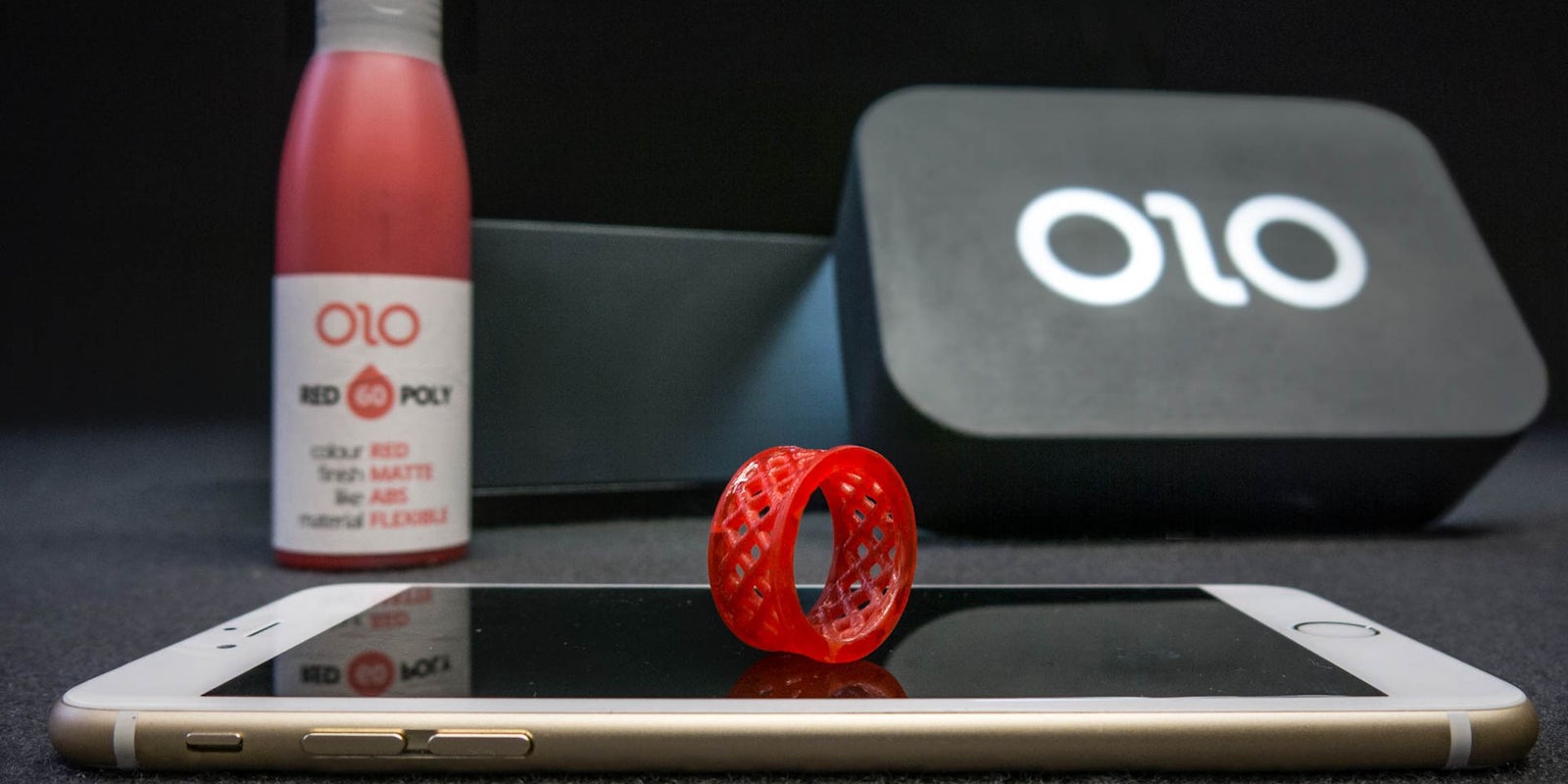One of the biggest obstacles for 3D printing is accessibility; most people don’t have access to the pricey equipment required. Olo’s aim is to change that by using the hardware most people already own: a smartphone.
Two years of work by a team of engineers created Olo, a super simple printer consisting of just three plastic pieces, one chip, and one motor. The compact device is lightweight and portable, and requires four AA batteries for power rather than an outlet.
An accompanying smartphone app gives users the ability to print just about anything. There’s a full database of ready-made designs to choose from, and community members are free to upload their own creations for others to print at will as well. Users can even complete 3D scans with their smartphone or draw designs in 3D software and bring those creations to life.
https://www.youtube.com/watch?v=kFNPyS97uBQ
When it comes time to print, what makes the process go is a smartphone—not via an app, but rather the actual, physical handset itself. When it comes time to print, Olo uses the light produced by the smartphone display.
Olo uses a brand new material called daylight resins—a photopolymer that reacts specifically to the white light emitted by smartphone screens. The Olo app instructs the smartphone to light up specific pixels on its display for a set amount of time to make the resins take shape. Layer by layer, the process turns the gooey material into the hardened finished product.
By tapping into the power of the smartphone, Olo (literally) casts 3D printing in a whole new light. Any device—Android, iOS, and even Windows Phone—can be used as the primary driver of the printing process, and because the most expensive hardware is already sitting in the user’s pocket, the printer itself is kept more affordable at $99.
https://www.youtube.com/watch?v=lRU6h46eAmg
While the cost of 3D printing has been coming down, most of the “affordable” lines still will require forking over at least a few Franklins. That’s technically true of Olo too, if you factor in the cost of the smartphone, but that’s a device one would either already own or would buy for a different primary purpose.
The company has also hinted at the possibility of a tablet-sized version of the printer down the line, which would enable larger objects to be printed while utilizing the same technology that makes Olo work.
Olo is currently raising funds on Kickstarter, but it has thoroughly obliterated its original goal of $80,000. It’s currently closing in on $1.5 million with three weeks left. Early bird versions of the finished product are expected to arrive in September 2016. The company didn’t specify a retail date, but it does expect to keep the price at $99.


